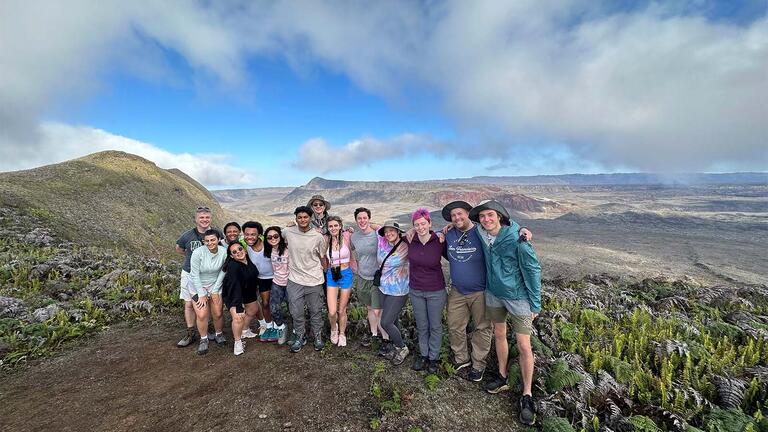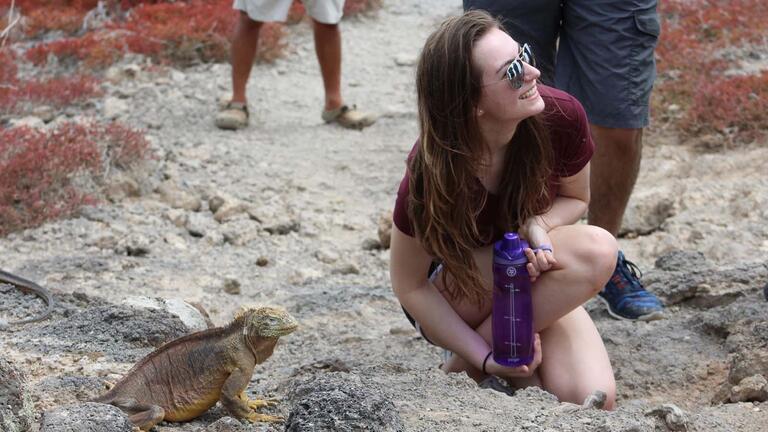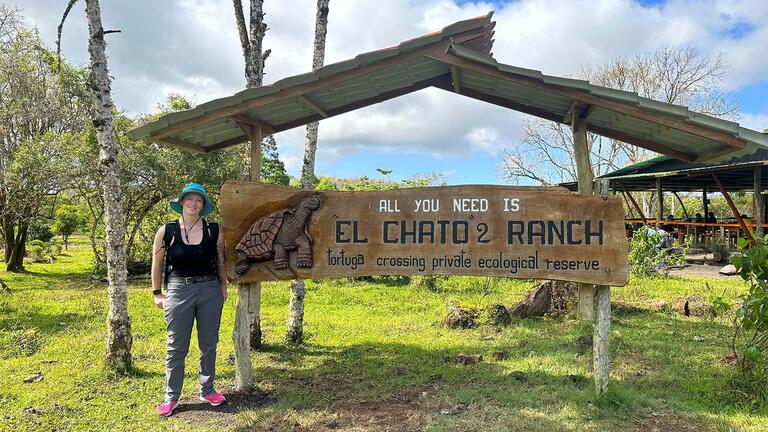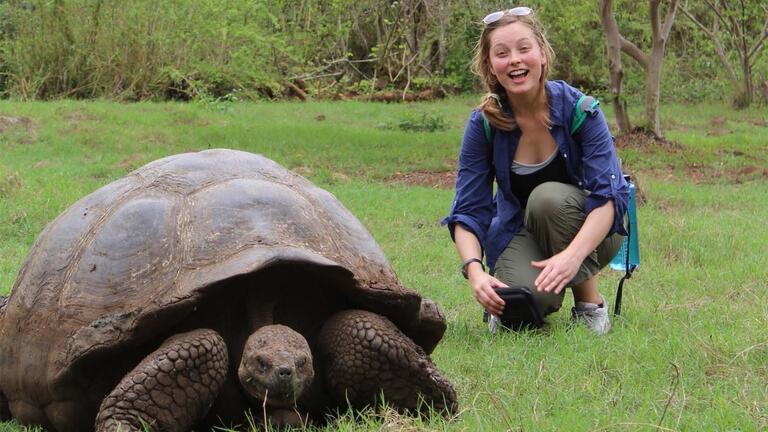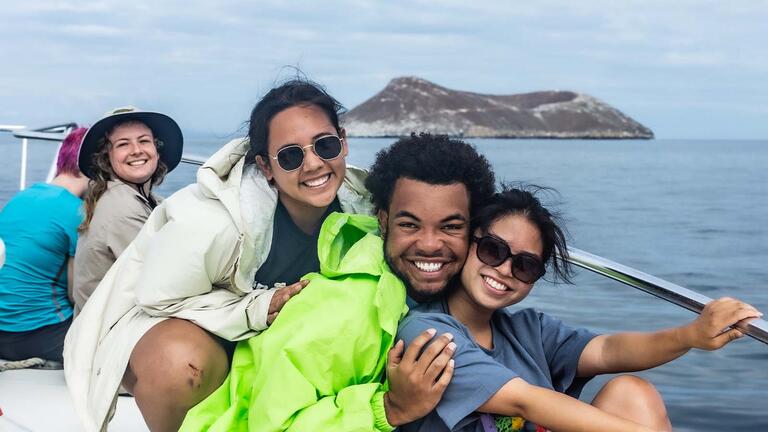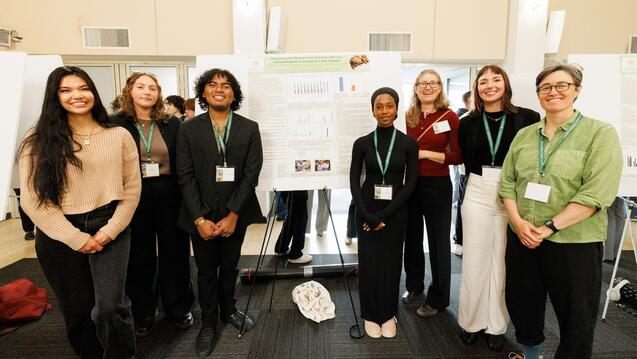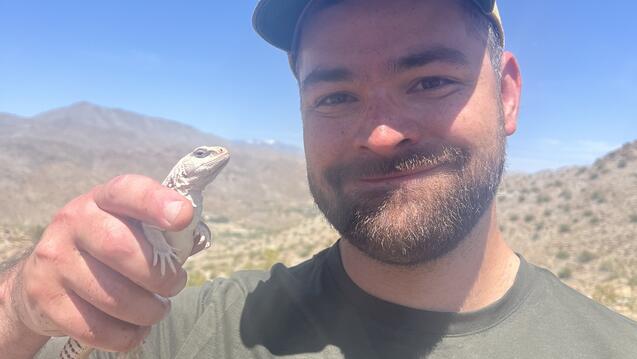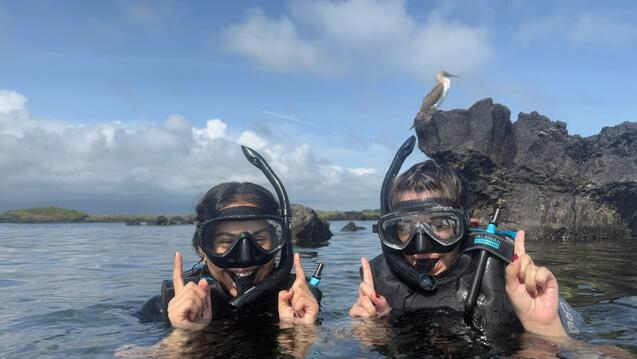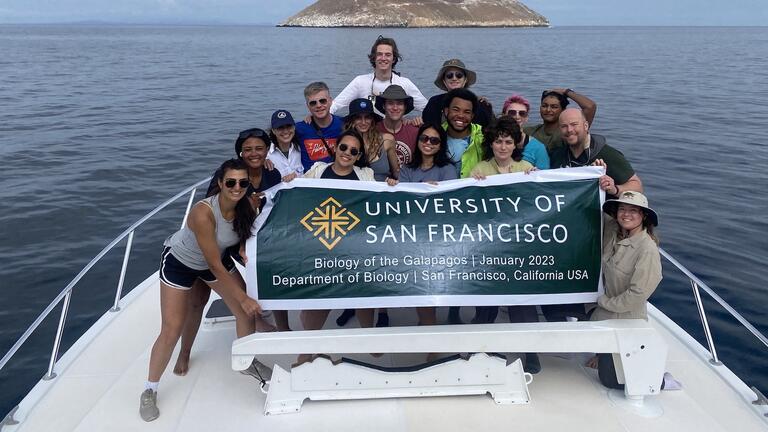
Meet Chelsea Noack '17
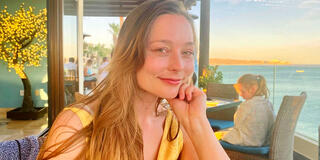
She talks about her college journey, experience in editing and science, and how USF helped her find her way.
Why did you choose USF? What drew you to it?
I was actually a transfer student. I had taken a break from undergrad and wanted to go back to school and I really wanted to get a biology degree. It was between a couple of schools, but when I got to the [USF] campus, I had one of those feelings like, “Oh, right, this is a good fit.” I really loved the science building, I heard a lot of good recommendations about the biology program, and I loved the city itself.
Why did you choose biology?
In high school I was never good at the sciences, or so I told myself. I was always a writer, and that's what I wanted to be. In the first college I went to, I decided to be a philosophy major, but ended up finding out that I didn't really know what to do with the philosophy major. Philosophy and biology are very much sisters of each other; they're ways of understanding the natural world. I really wanted to challenge myself and explore this major because I knew there were a lot of opportunities and it tackled the same questions and things I cared about, which was getting to understand the world a bit better, just maybe in a little more mechanistic way.
Was there anything in particular that you enjoyed about the classes or about majoring in biology?
I think once you get past the prerequisites, you really get to see the bigger picture. In biology, everything becomes less about memorization and it becomes more about how you utilize it in the real world. In Invertebrate Zoology, we'd go on these field trips to tide pools and mud flats with [Prof. James] Sikes. And you spend your time actually seeing what you've been learning out in the wild.
There's other courses like female biology where you learn about the cycles of hormones. You've memorized them, but you get to actually understand these niche areas of biology a lot better. USF does a really good job of that because it shows biology students that there's not only one path. It's not like you finish and you just understand all of biology, you end up loving a really specific part, maybe, or different areas. You might love endocrinology better, you might like marine biology better, and it shows all these options to you.
Did you go on the Galapagos trip?
I did, yeah. It was life changing. And it was also very like…I didn't have a group at USF because I was a transfer, and at that point I just wanted to work on schoolwork. That trip actually got me friends that I'm still best friends with today.

What are you doing now?
Right now I am an editor at Oxford University Press, and I work under neuroscience textbooks as well as some life science textbooks. Books like animal behavior and marine biology. I previously was at Pearson and moved over here; it's been really rewarding. You get to work with some of the smartest and most interesting people.
How would you say your USF degree or any of your biology classes prepared you for the work you do now?
There was a really impactful writing seminar that you take at the end of your major, and it helps you understand primary research better and in a more critical-thinking way. It was really hard to be good at this. I barely knew anyone who came out of that class after the first couple of assignments doing a really great job. You'd have to write a couple of sentences about what primary research was about, what was the point of this paper, and you end up finding out that how you read about science is a craft, and being able to write about it afterwards is a skill. That actually kind of led me to why I got my master’s in science writing.
Is there anything you wish you would have known before your first job out of college?
I wish I would have known my options when graduating with biology, because around me, everyone was trying to go to medical school or a graduate school or they were at UCSF doing research. And what you end up finding out is there's tons of careers in biology, and those aren't the only pathways. I think that's probably what I wish I had known; the path is not linear. Science is ever evolving. There's always going to be new things you'll want to study and new things you want to understand.
What's been your favorite or most surprising aspect of what you're doing right now with your work?
It's strange to be on the other end of things. Right now I'm working on educational materials for college students who are in biology programs. That was something I never anticipated: working with authors who would have probably been my professors. I think that's been the biggest shock, being on the other end of things.
What impact would you like either your current work or your future work to have on the biology field?
Ideally, I would like science to be engaging and fun. It shouldn't be the scary thing, the thing that I thought was so dominating when I was in high school and I was too afraid to study it and enjoy it because I thought that I wasn't a science person. And in reality, I think the biology field extends itself to everybody. Everyone can be a scientist, everyone can be a biologist. You don't have to be the perfect student in order to be an amazing biologist or scientist. I think that accessibility and science should be enjoyable. We experience it every day, so why shouldn't we enjoy what we’re learning and then take it to the field, take it outside, see how that relates. I just want everyone to feel like they can be a scientist. Even a high schooler who only reads novels can be a scientist too.
Do you have any advice for students who are graduating, or who are in the biology program right now?
The feeling of being overwhelmed is so temporary. You're learning a lot, and there's a lot of pressure you might be feeling if you're on your way to graduating or even pressure from a future exam. Just know that the feeling is going to pass and it's going to be so rewarding at the end. It's easy for me to say that now, but I look back and start to forget the stressful moments, and remember more of the good moments.
